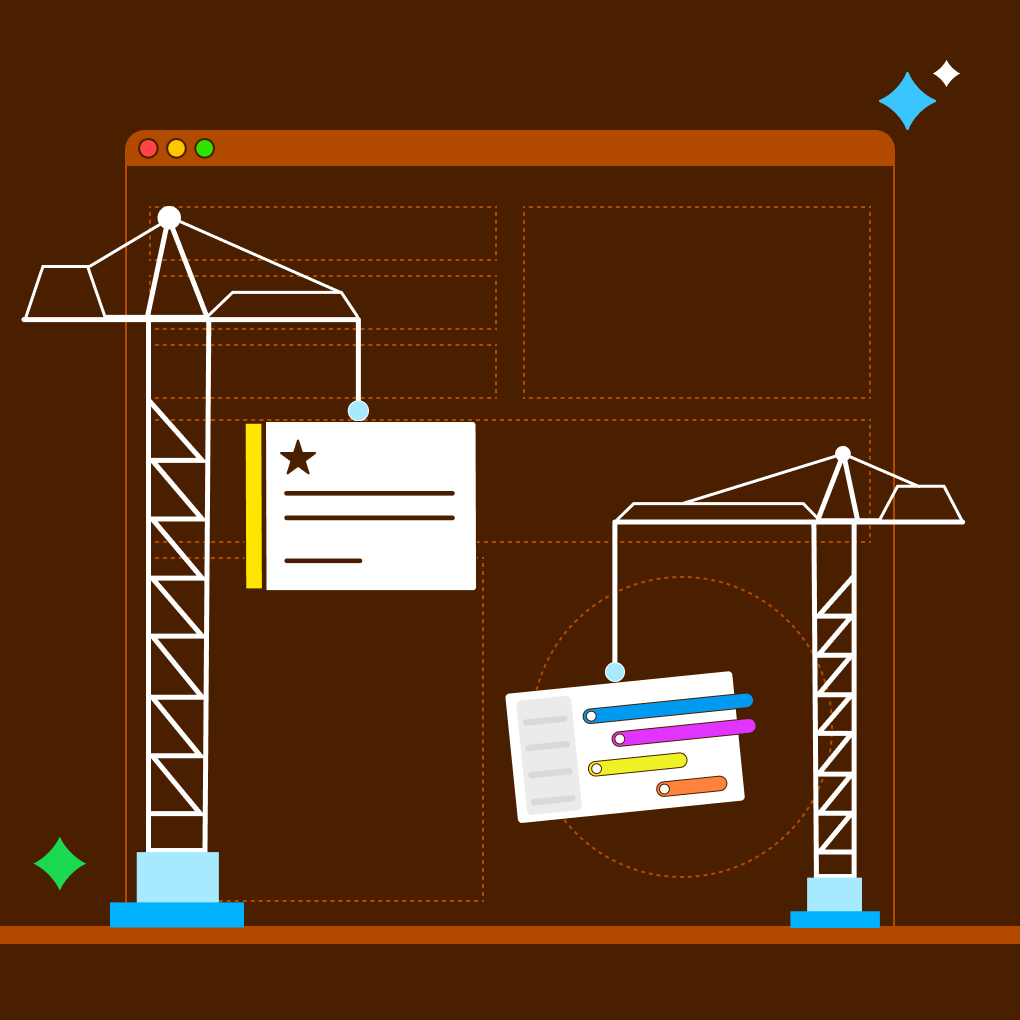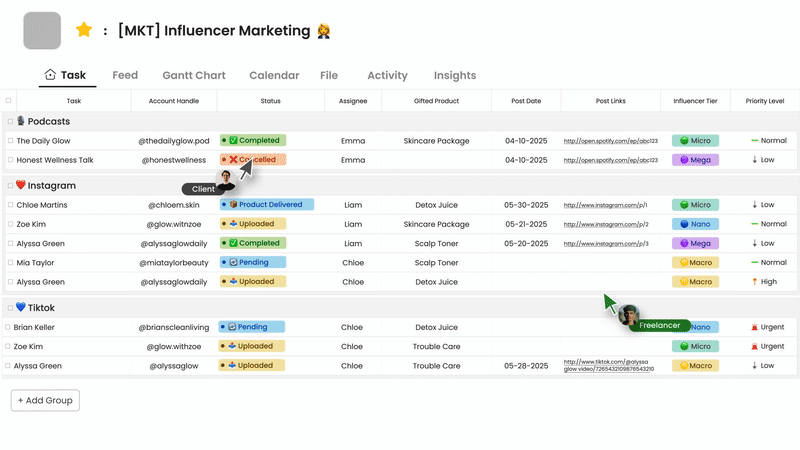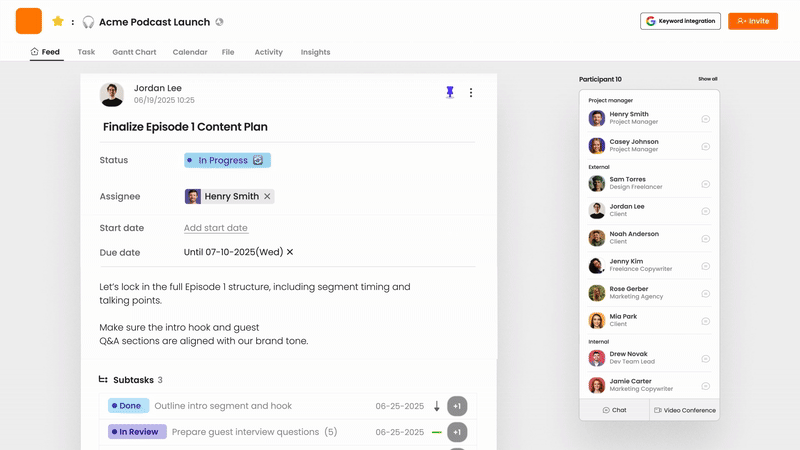Construction projects require careful planning, design, and execution. If project management is not handled properly, delays can occur. This guide will assist you in successfully managing construction projects to keep them on track.
Effective construction project management helps coordinate tasks and resources efficiently and on time.
Regardless of the size of the project, a systematic approach ensures that everything remains organized and manageable. Implementing the right strategies can help prevent common issues, such as miscommunication and budget overruns.
What Is Construction Project Management?
Construction project management involves planning, coordinating, and overseeing all aspects of a construction project. It differs from general project management due to unique challenges like permits, safety regulations, and contractor collaboration. A construction project manager organizes people, materials, and schedules, leading architects, engineers, contractors, and suppliers to ensure safe construction according to design specifications. Without clear roles, projects can become chaotic, leading to confusion and delays. A skilled project manager ensures that tasks are completed correctly and within budget.
Why Construction Projects Need Dedicated PM
Construction projects are complex, involving multiple teams working simultaneously. Without effective project management, coordination can suffer. Delays in one area can throw off the entire schedule. A dedicated project manager helps prevent these issues by monitoring progress and addressing problems as they arise.
Another important aspect is budget control. If materials, labor, or timelines are not managed properly, construction costs can quickly escalate. A project manager keeps a close eye on expenses to avoid unexpected costs. Good management also reduces accidents by enforcing safety regulations and best practices.
In summary, project management is essential for successful construction projects. Without it, even straightforward projects can encounter significant challenges. From planning to inspections, a skilled project manager ensures everything runs smoothly.
Key Phases of Construction Project Management
An organized process is essential for ensuring the success of every construction project from beginning to end. Each phase helps project managers stay on track and ensures that nothing is overlooked. Regardless of the project’s size, there are specific steps to follow, similar to managing construction projects. The five main phases are initiation, planning, procurement, construction execution, and project closeout.
Each phase builds on the previous one to ensure the project progresses smoothly.
Phase 1 – Initiation
The initiation phase sets the foundation for the entire project. During this stage, the project team defines the main goals and assesses their feasibility. For home-building projects, this may involve meetings with clients. The process includes conducting market research and performing financial analyses for larger developments.
Key activities in this phase include consulting with stakeholders, conducting feasibility studies, and identifying basic requirements. The team also examines potential risks and constraints, such as zoning regulations and environmental concerns. By the end of this phase, the project should have clear objectives and an initial budget. If the project is not properly initiated, it can lead to delays in later stages.
Phase 2 – Planning
Once the project receives approval, detailed planning begins. This phase transforms broad ideas into actionable steps. The project manager creates schedules, budgets, and designs, while architects and engineers develop the blueprints. Cost estimators provide financial projections.
A crucial aspect of planning is risk management. The team identifies potential issues, such as material shortages or weather delays, and develops contingency plans. Communication strategies are also established to keep everyone informed. When executed effectively, planning facilitates a smooth construction process by minimizing surprises.
Phase 3 – Procurement
Procurement involves securing everything needed to start construction. This includes hiring subcontractors, ordering materials, and renting equipment. The project manager must ensure that suppliers and contractors meet deadlines and specifications.
Contracts are vital in this phase. Clear contracts help prevent disputes regarding costs, schedules, or work quality. Effective construction project management requires careful planning, forecasting, and organizing to ensure the project runs efficiently. Delays during this phase can lead to costly setbacks later on.
Phase 4 – Construction Execution
This phase marks the beginning of the physical construction work. The project leader oversees daily activities and ensures that workers adhere to plans and safety regulations. Regular inspections are conducted to maintain quality and compliance with building codes.
Communication is crucial during execution. The project manager facilitates quick problem-solving among architects, engineers, and contractors. Design changes or material delays can create challenges that require immediate solutions to keep the project on track. Good project management ensures that the construction process remains smooth.
Phase 5 – Project Closeout
The final phase concludes all project activities. The team inspects the completed work for defects and obtains necessary approvals from inspectors. All contracts with suppliers and subcontractors are settled, and final payments are made.
Documentation is a key component of the closeout phase. The project manager compiles all permits, warranties, and maintenance manuals for the client. This step also involves identifying lessons learned for future projects. A proper closeout ensures a smooth transition for the client.
The foundation of successful construction project management lies in these five phases. As discussed, each stage is designed to complete essential tasks for every construction project. Overlooking any phase can lead to delays, increased costs, or quality control issues. By utilizing effective project management, builders can complete projects on time, within budget, and to the highest quality standards.
Responsibilities of a Construction Project Manager
A construction project manager is crucial for ensuring that projects run smoothly from start to finish. They coordinate people, resources, and schedules to deliver the project according to plan. The main responsibilities of a construction project manager are similar, whether they are working on a large contractor project or a smaller one. They must balance various tasks while keeping the project on track, ensuring it is safe, within budget, and on schedule.
Stakeholder Management
The project management team plays a key role in keeping stakeholders informed throughout the process. This includes clients, designers, technical specialists, builders, and local communities. The lead communicators share concerns and messages from the builders with different project managers.
Regular meetings and clear communication help prevent misunderstandings that can delay progress. In construction project management, managing expectations is just as important as managing the actual build. An effective project manager ensures that everyone is aligned and moving forward together.
Budget and Timeline Control
Successfully managing a construction project requires keeping costs in check and meeting deadlines. The project manager monitors spending, compares estimates to the budget, and adjusts plans as needed. Price increases for materials or changes in design can lead to unexpected costs, so constant vigilance is essential.
Timelines also need careful attention. The project manager creates the schedule, sets milestones, and ensures that work stays on track. If one area falls behind, it can impact the entire project. Therefore, they must address issues quickly, often using Gantt charts to visualize progress and hold team members accountable.
Safety and Compliance
Ensuring safety is the top priority in any construction project management process. The project manager enforces safety protocols to prevent accidents and protect workers. They also ensure that the project complies with all building codes and regulations.
Weekly site inspections assess hazards and the quality of work. Permits and approvals must be obtained before work begins. Failing to follow regulations can lead to fines, delays, and project shutdowns. Maintaining a safe and compliant work environment allows the project to proceed smoothly.
A construction project manager wears many hats to keep projects running efficiently. They are essential for communicating with stakeholders, managing budgets, enforcing safety, and more. When a project manager effectively fulfills their responsibilities, projects are completed on time, within budget, and to high standards.
Common Challenges in Construction Projects
Construction projects often encounter challenges that can hinder progress if not addressed properly. Even with effective project management, unexpected issues can arise during home building or large commercial developments.
These challenges can lead to delays, increased costs, and frustration for everyone involved. Three common problems include scope creep, communication breakdowns, and delays in change orders. Understanding these issues can help in managing construction projects more effectively.
Scope Creep
Scope creep occurs when project requirements expand beyond the original plan without appropriate adjustments to the budget or timeline. In construction project management, clients may request additional features or changes once work begins. While some adjustments are normal, uncontrolled changes can strain resources and push deadlines.
For example, during a construction project, a homeowner might decide to upgrade materials or add extra rooms midway through the process. Without clear change management procedures, these additions can disrupt schedules and increase costs. Effective project management requires documenting all changes and assessing their impact before approval.
Communication Breakdown
Poor communication leads to many problems in construction projects. With multiple teams involved—architects, contractors, suppliers—misunderstandings can easily occur. A lack of clear updates can result in mistakes, rework, and delays.
In project management for builders, regular meetings and centralized communication tools help prevent confusion. When teams do not share updates promptly, work may proceed based on outdated plans. For instance, if an engineer’s design change is not communicated to the construction crew, errors can occur, leading to costly fixes. Keeping everyone informed ensures smoother progress.
Change Order Delays
Change orders are formal requests to modify the original project plan. While sometimes necessary, they often slow down progress. Approval processes, revised designs, and sourcing materials can take time, causing delays.
Change order delays can significantly extend timelines during construction project management. For example, if a client requests a different flooring option at the end of the project, it may take weeks to source and receive the new materials. Contractors would need to reschedule their jobs, leading to further delays. Proper planning and setting the right expectations early on can minimize unnecessary changes.
Construction projects rarely go exactly as planned. They often face challenges such as scope creep, communication gaps, and delays in change orders.
However, these challenges can be anticipated and managed with strong project management. Well-defined contracts, regular project updates, and an organized change-order process can help. When these issues are addressed early, disruptions are reduced, and successful delivery is more likely.
Best Tools for Construction Project Management
Effective management of construction projects relies on tools that help keep projects organized, on schedule, and within budget. Construction teams use specialized software and systems to work more efficiently.
These tools enhance project management by improving communication, tracking progress, and managing resources. Three key categories of construction management tools are Gantt charts and scheduling software, field collaboration tools, and resource management platforms.
Gantt Charts and Scheduling Software
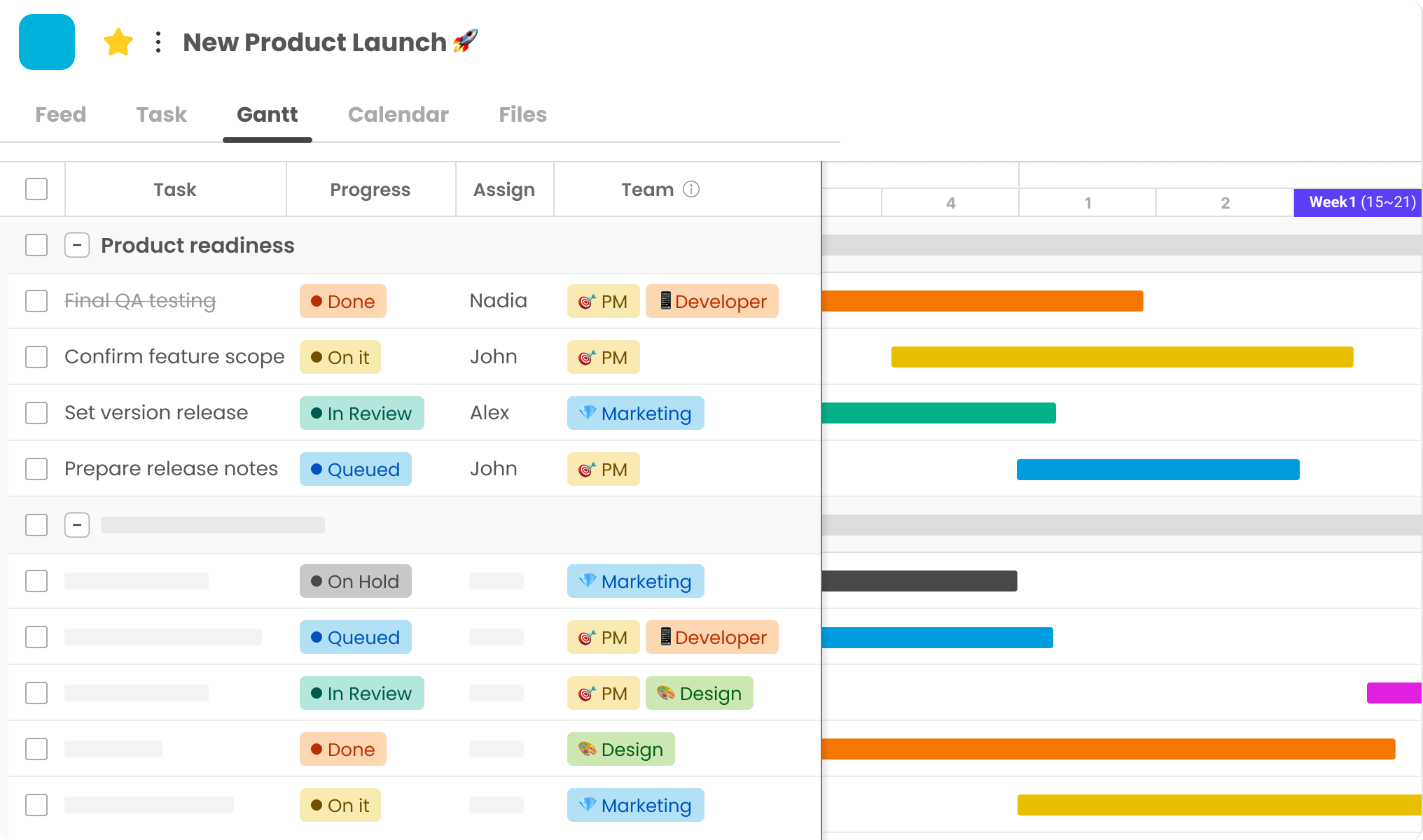
Gantt charts offer a visual timeline of the entire project, displaying tasks, deadlines, and dependencies. Scheduling software builds on this by allowing project managers to adjust timelines, assign tasks, and track progress in real time. These tools help teams stay on schedule by identifying potential delays before they become issues.
For example, if a foundation pour is delayed due to weather, the software can automatically adjust subsequent tasks like framing and electrical work. This prevents bottlenecks and keeps the project moving forward. Popular scheduling tools also enable teams to share updates instantly, ensuring everyone is working from the same timeline.
Field Collaboration Tools
Construction projects require constant communication between office teams and workers on-site. Field collaboration tools help bridge this gap by providing mobile access to plans, documents, and updates. Workers can report progress, flag issues, and request information directly from the job site.
These tools often include features like photo documentation, instant messaging, and task assignments. If an unexpected problem arises, such as a pipe conflict in a wall, workers can quickly share images and notes with engineers for resolution. This reduces downtime and prevents costly mistakes from moving forward unchecked.
Resource Management Platforms
Efficiently managing materials, equipment, and labor is crucial for controlling costs and avoiding delays. Resource management platforms track inventory levels, equipment usage, and crew assignments across multiple projects. This helps project managers allocate resources where they are needed most.
For instance, if concrete is running low across several job sites, the system can alert managers to reorder before it causes a work stoppage. Similarly, tracking equipment usage ensures that expensive machinery is shared effectively between projects rather than sitting idle. These platforms provide data to help make smarter decisions about purchasing and labor distribution.
The right tools can make a significant difference in construction project management. Gantt charts and scheduling software keep projects on track, field collaboration tools improve communication, and resource management platforms optimize materials and labor. Together, these systems help teams work more efficiently, reduce waste, and successfully deliver projects. Investing in quality project management tools leads to smoother operations and better results.
Choosing the Right Software for Builders
Finding the right software is essential for builders to manage their projects effectively. The construction industry needs specialized tools that can handle complex schedules, multiple teams, and tight budgets. Whether you are working on large contractor projects or smaller home building tasks, the right software can significantly impact the success of your construction management.
Good construction software should simplify the complicated process of project management. It should combine scheduling, communication, document management, and budgeting all in one place. The best platforms help teams stay organized while adapting to the unpredictable nature of construction work.
Features to Prioritize
When choosing software for building project management, several key features are important to consider. Scheduling capabilities should be strong enough to handle last-minute changes while keeping an overview of the entire project timeline. Budget tracking tools must provide real-time cost updates to help prevent overspending.
Document management is another vital feature for builders. The software should securely store and organize blueprints, permits, contracts, and change orders, making them easily accessible to everyone. Communication tools should connect office and field teams, allowing for instant updates from job sites.
Mobile functionality is essential in modern project management for construction. Field crews need full access to plans and tasks from their smartphones or tablets. Reporting features should create clear progress updates and identify potential issues before they lead to delays.
Integration capabilities are just as important as the core features. The best construction software connects with accounting systems, design tools, and other business applications. Security is also crucial, ensuring that sensitive project data is protected while allowing appropriate access for team members.
Top Software Picks for 2025
1. Morningmate
Morningmate stands out as the most comprehensive solution for managing construction projects in 2025. This all-in-one platform combines project planning, team collaboration, and document management with an intuitive interface.
What makes Morningmate special is how it brings together every aspect of construction management without overwhelming users. The software adapts equally well to large contractor projects and home building project management, making it versatile for different company sizes.
2. Wrike
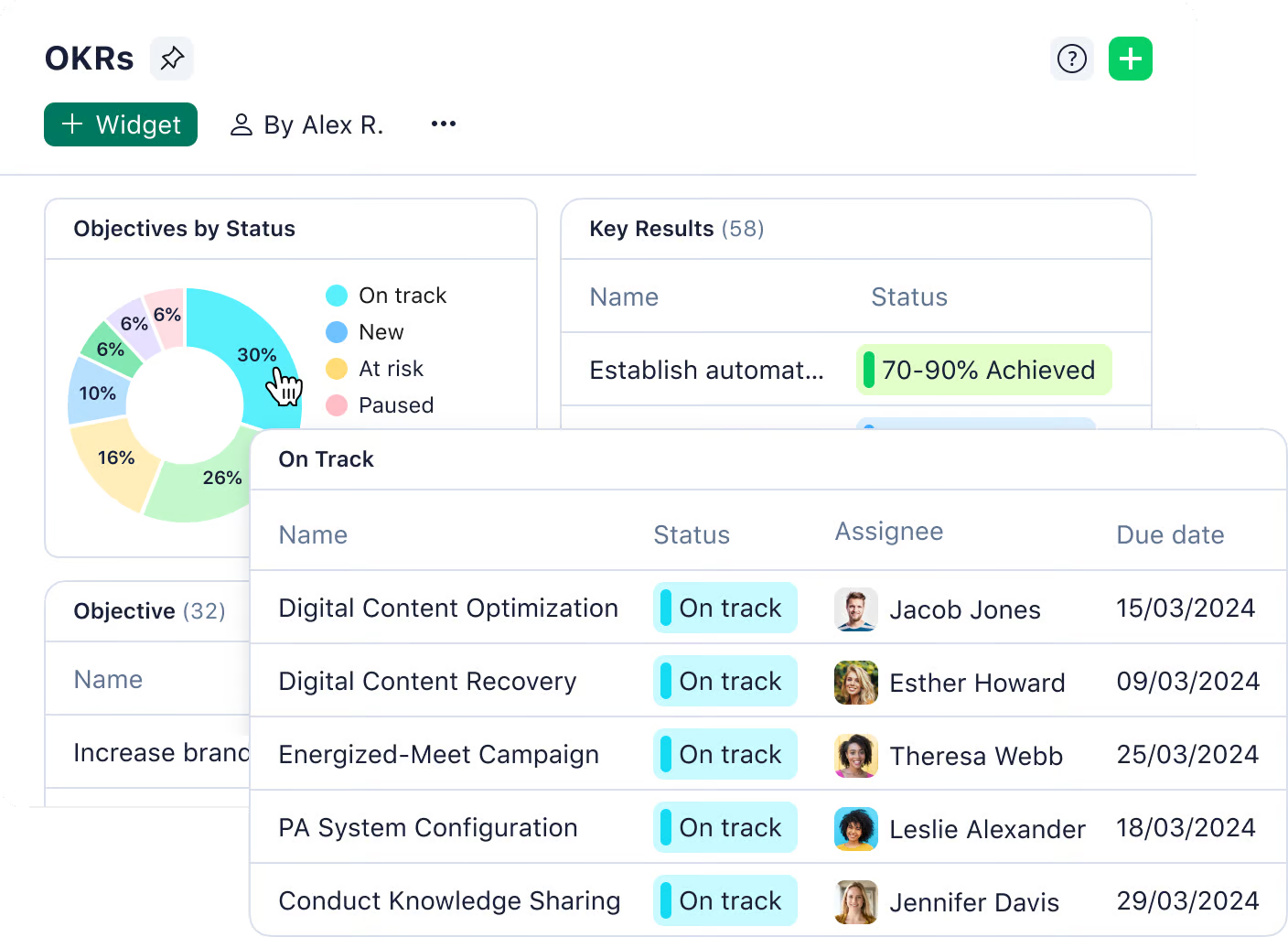
Wrike offers powerful customization options for construction teams needing tailored workflows. Its strength lies in visual project tracking and advanced reporting features. While not built specifically for construction, its flexibility makes it popular among tech-savvy builders who want to create their systems.
3. Monday.com
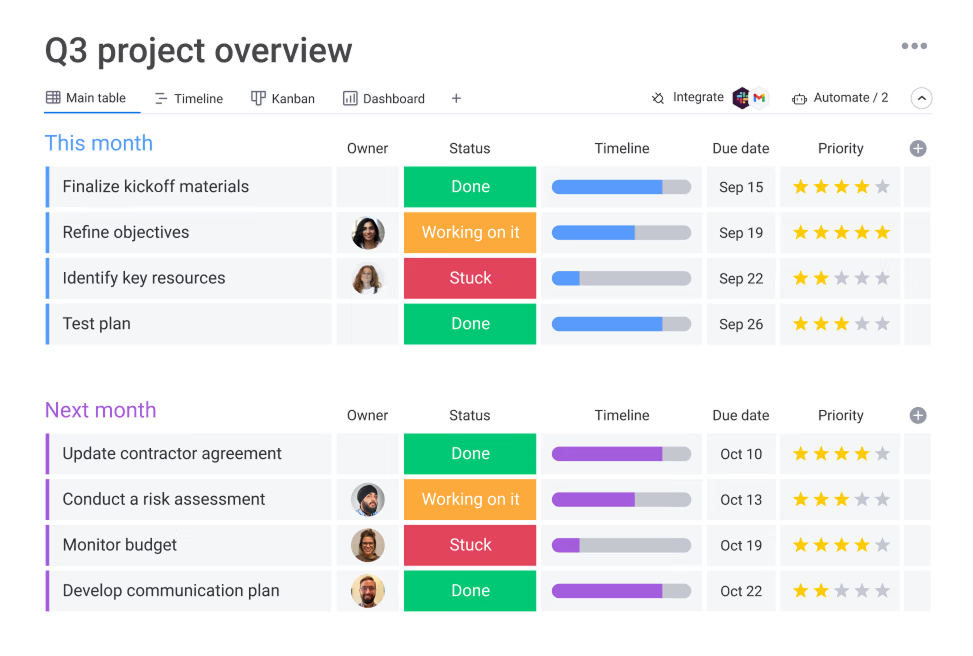
Known for its colourful and user-friendly interface, Monday.com simplifies task management for construction teams. The platform works particularly well for home building project management, where visual organization helps keep multiple projects clear. Its automation features can save significant time on routine project updates.
4. ClickUp
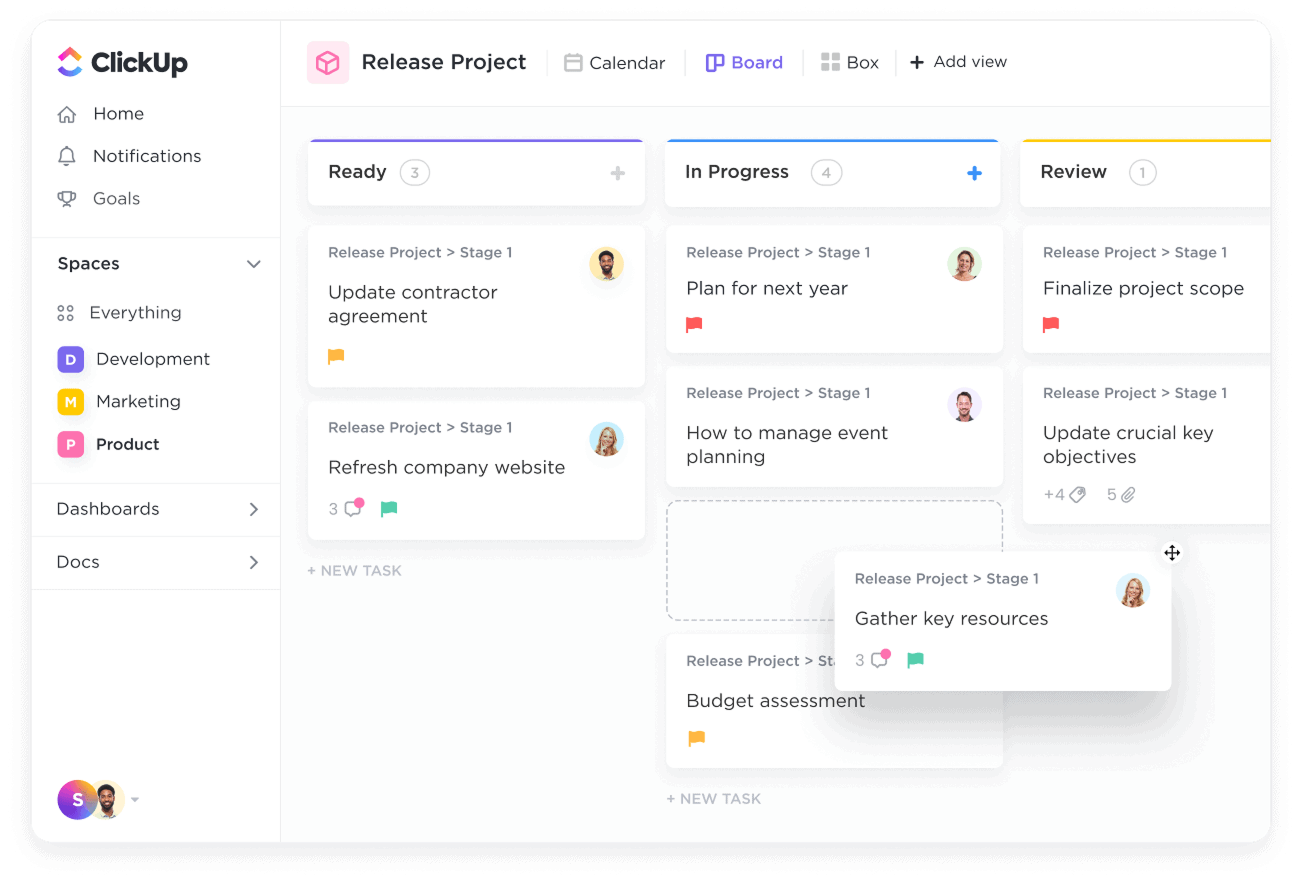
ClickUp has emerged as a strong contender in project management for builders with its all-in-one approach. The software combines task management, document storage, and team communication in a single platform. Its customizable views allow different team members to see information in the way that works best for them.
5. Zoho Projects
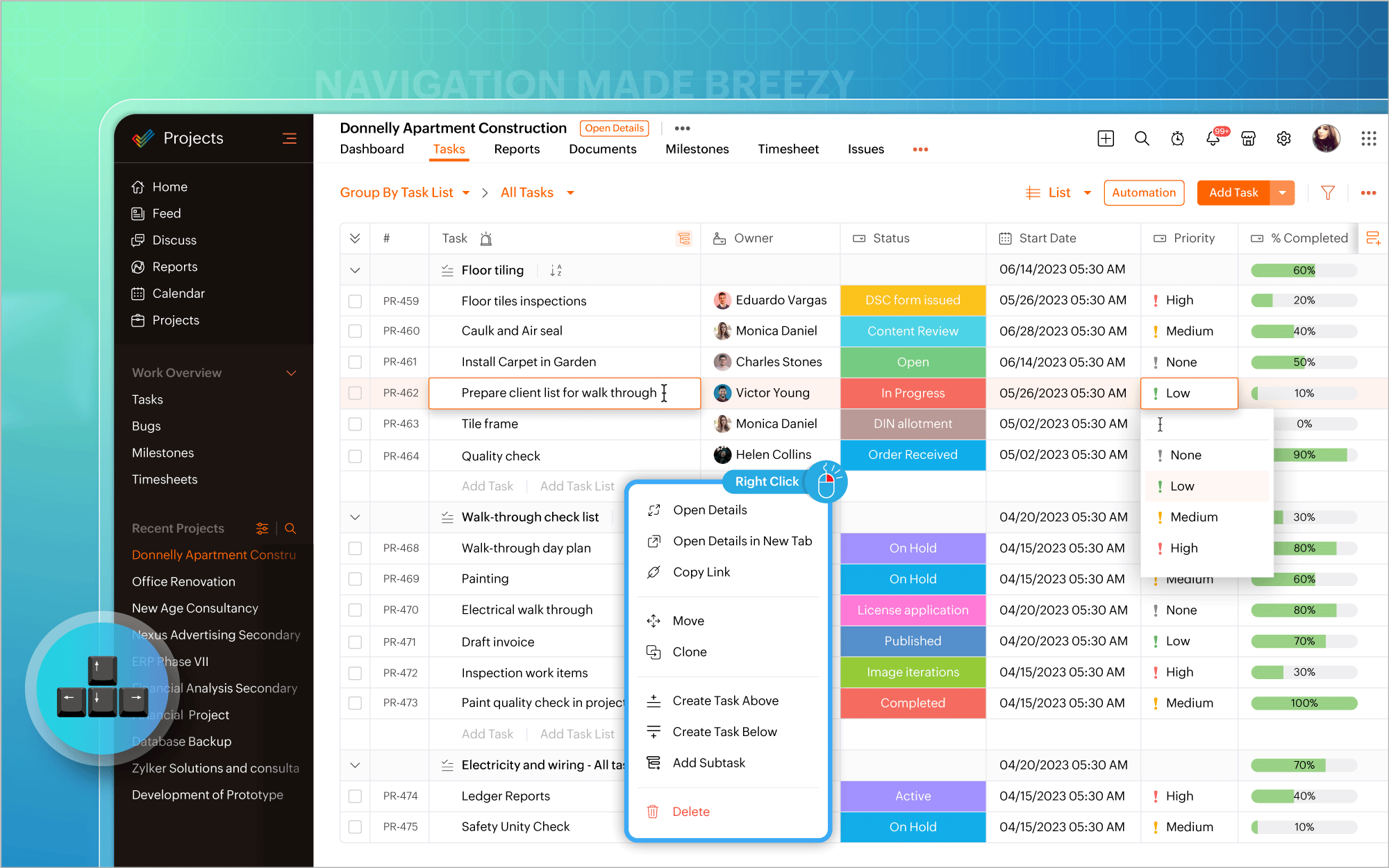
Part of the extensive Zoho business suite, Zoho Projects offers solid construction management features at a competitive price point. The software integrates well with other business tools, making it a good choice for builders who want connected systems for projects, CRM, and accounting.
6. Asana
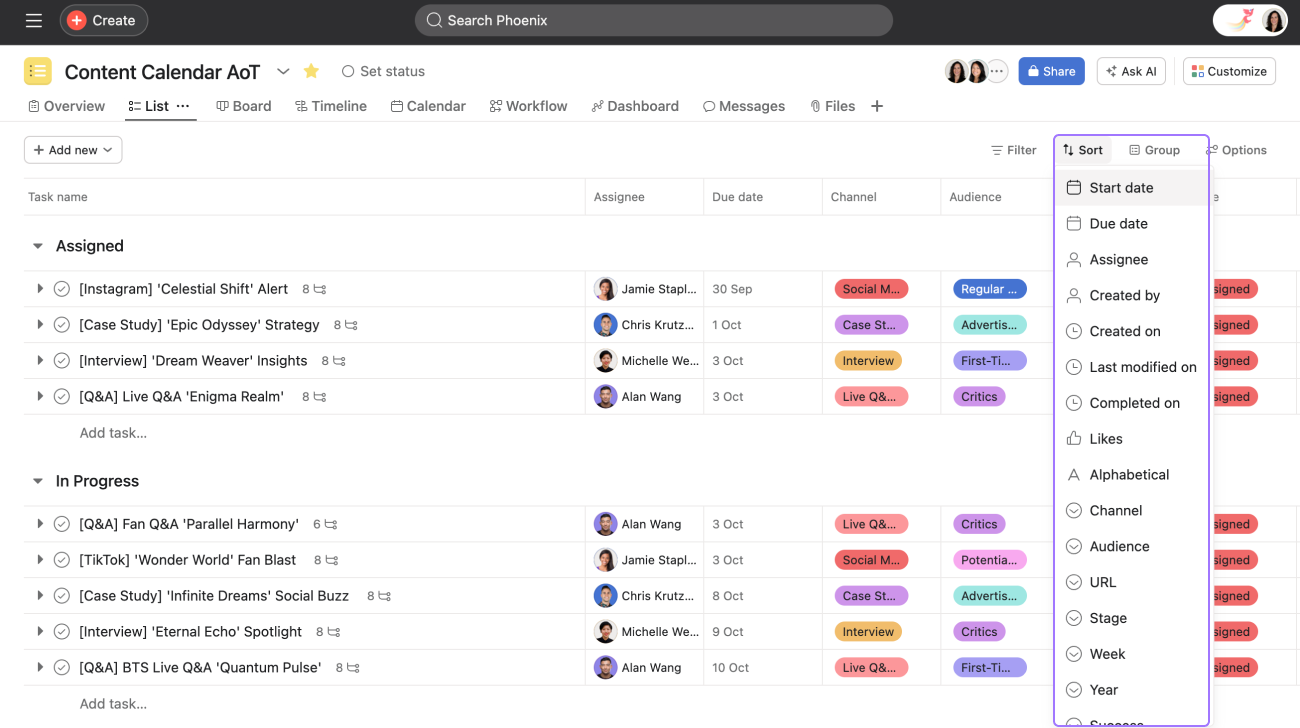
While not construction-specific, Asana’s clean design and straightforward task management appeal to many builders. It works particularly well for smaller teams handling build project management who need simplicity above advanced features. The mobile app keeps field teams connected to project updates.
7. Smartsheet
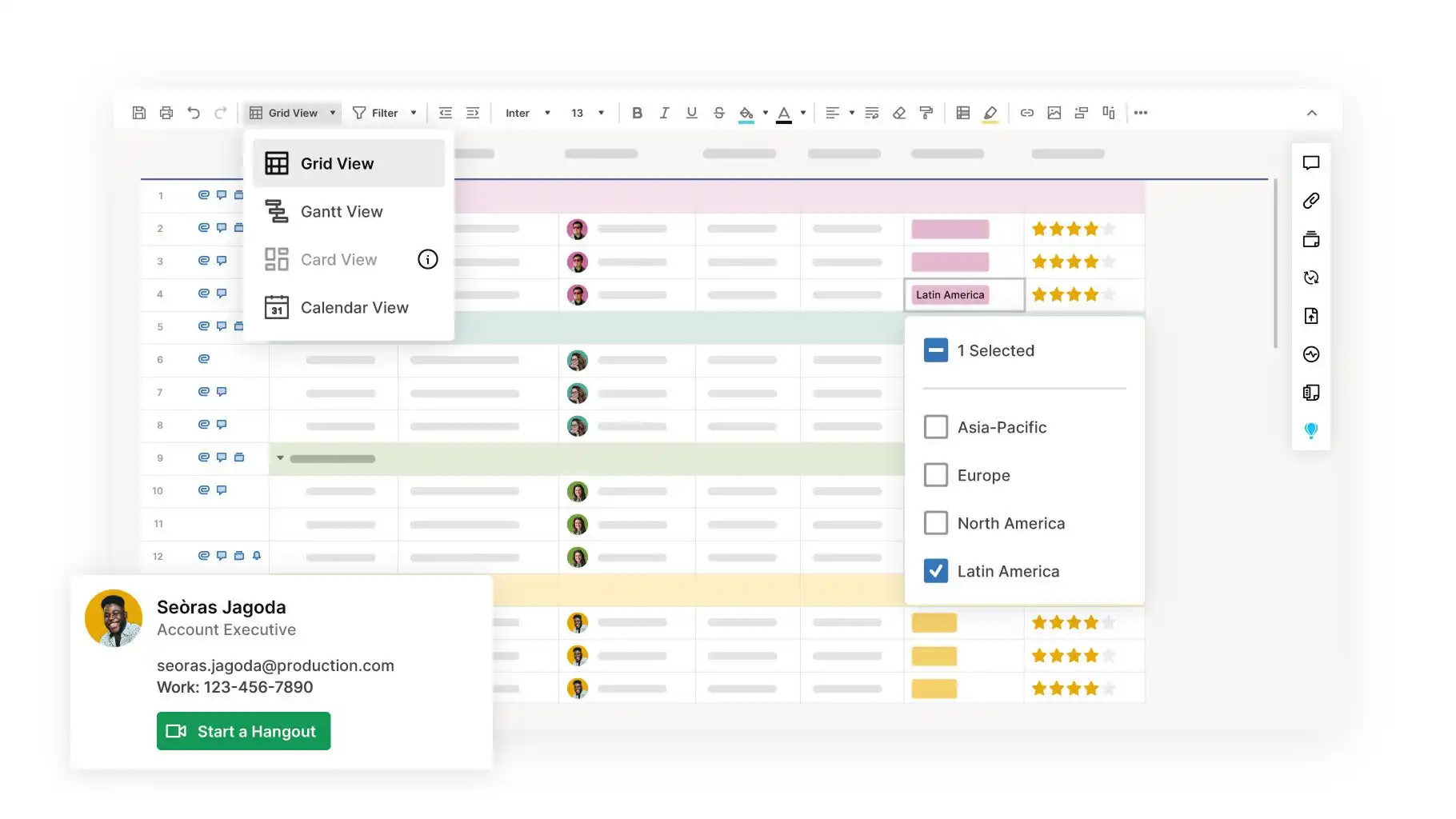
Smartsheet brings spreadsheet-like flexibility to construction project management. Its familiar interface lowers the learning curve for teams transitioning from manual systems. The software shines in tracking complex schedules and resource allocation across multiple projects.
8. Teamwork.com
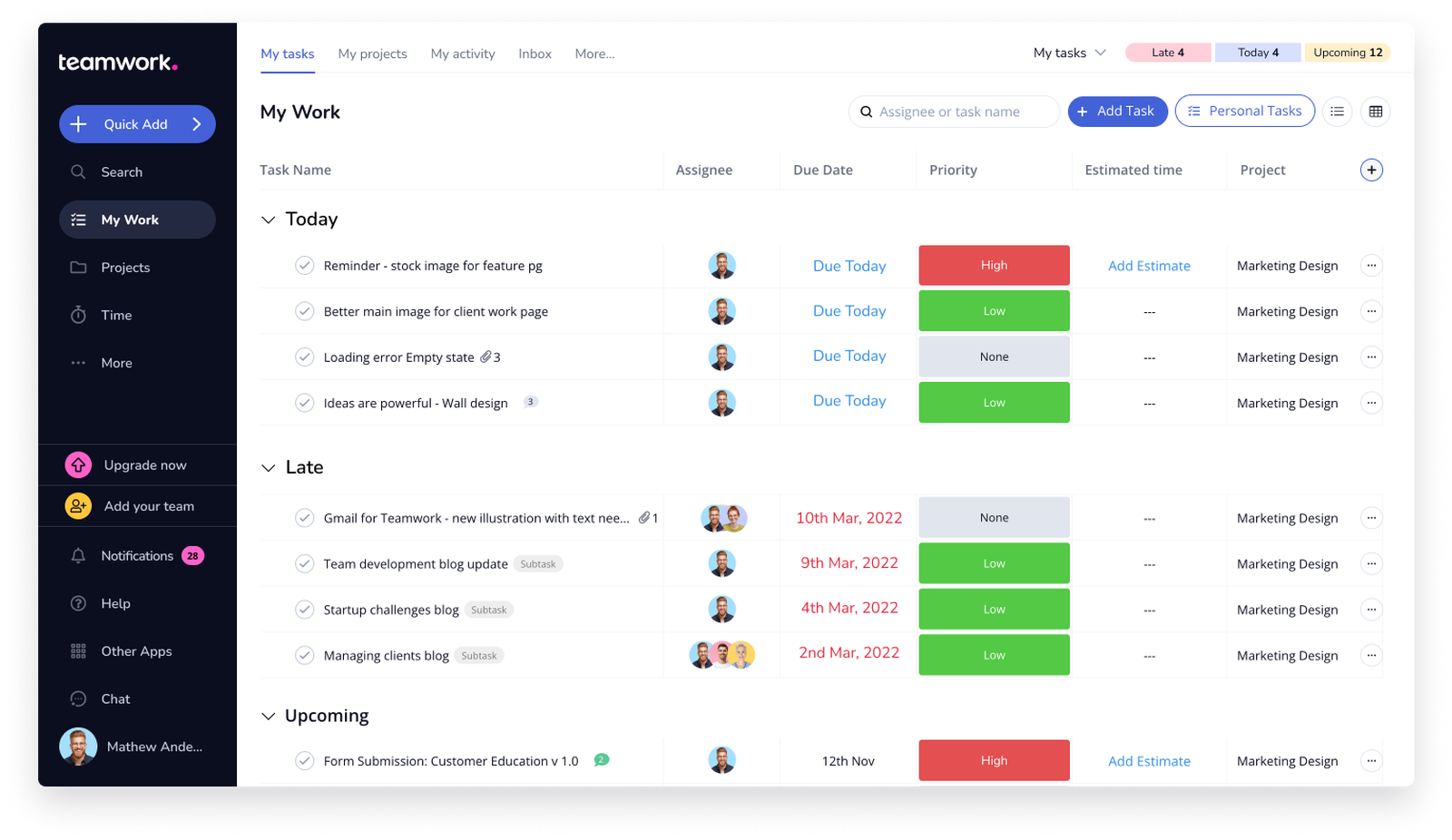
Teamwork.com provides robust tools for client communication alongside standard project management features. This makes it valuable for residential builders focused on home building project management, where client updates are frequent. The platform balances simplicity with enough power for most construction needs.
9. Fieldwire
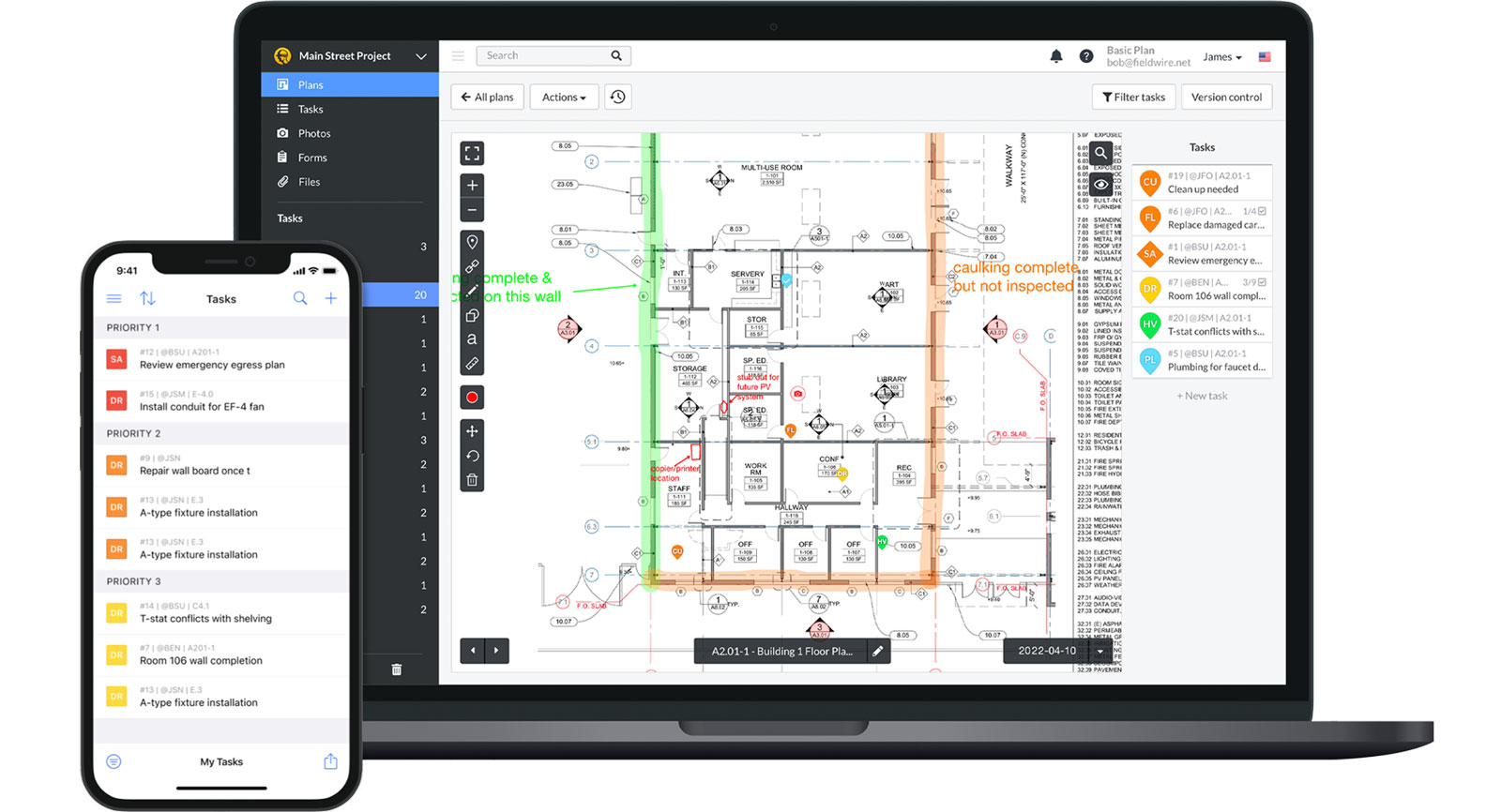
Specializing in field operations, Fieldwire excels at plan management and task coordination on job sites. The software makes it easy for crews to access current drawings, report issues, and receive assignments directly on mobile devices. It integrates well with other management tools for complete coverage.
10. Jira
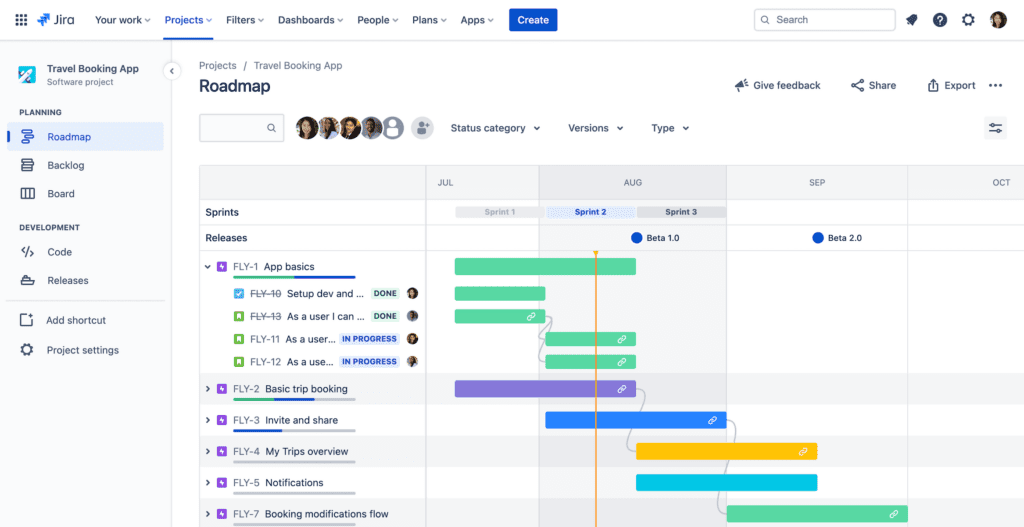
Originally designed for software development, Jira has been adopted by construction teams for its powerful issue tracking. The system works well for managing punch lists, quality control items, and defect resolution during project closeout phases.
Selecting the right software is one of the most impactful decisions for project management for construction projects. While Morningmate leads as the most complete solution, each platform offers unique strengths. The best choice depends on your company’s size, project types, and specific workflow needs.
For large-scale contractor projects, robust systems like Morningmate or Smartsheet provide the depth needed. Residential builders focused on home building project management might prefer Monday.com or Teamwork.com for their client communication features. Field-centric teams will appreciate Fieldwire’s mobile capabilities.
Start Construction Project Management with Morningmate
Getting started with project management for construction projects can feel overwhelming, but the right tools make it easier. Morningmate simplifies the process by bringing all essential features into one platform. Whether managing large contractor projects or smaller home-building project management jobs, Morningmate helps teams stay organized and efficient.
Setting Up Your First Project
Starting with Morningmate begins with creating a new project. The setup wizard guides users through entering basic details like project name, location, and timeline. Teams can upload important documents such as blueprints, contracts, and permits directly into the system. The platform allows customization to match specific workflows, making it adaptable for different types of build project management.
Adding Team Members and Assigning Roles
Once the project is created, the next step is adding team members. Morningmate makes it easy to invite architects, contractors, and subcontractors to collaborate. Each member receives access based on their role, ensuring everyone sees only what they need. Clear role assignments help maintain organization and prevent confusion during project management for builders.
Creating Schedules and Tasks
Morningmate’s scheduling tools help break down projects into manageable tasks. Users can set deadlines, assign responsibilities, and track progress in real time. The visual timeline makes it simple to see which tasks are on track and which need attention. This feature is especially useful for keeping home-building project management jobs running smoothly.
Communicating and Sharing Updates
Effective communication keeps projects moving forward. Morningmate’s built-in messaging allows teams to discuss tasks, share updates, and resolve issues quickly. Field crews can upload photos or notes directly from job sites, keeping everyone informed. This seamless communication reduces delays and improves coordination in managing construction projects.
Monitoring Progress and Adjusting Plans
Morningmate provides dashboards that show project progress at a glance. Managers can identify bottlenecks early and adjust schedules or resources as needed. The platform’s flexibility makes it easy to adapt when unexpected changes occur, a common challenge in project management for builders.
Conclusion
To effectively manage construction projects, you’ll need the right project management tools, strategies, and teams. From the planning to the execution stage, all phases of project management are important to complete the project on time and within budget. In 2025, builders can expect Morningmate to be the top choice for scheduling, budgeting, and communication software.
Whether it is for contractor project management or for home building project management, the right software simplifies workflows and reduces risks. Construction teams can become efficient by avoiding delays so they can get the project over the line with Morningmate and the best practices. When you invest in good project management, your builds will go easier and be successful in the long term.

